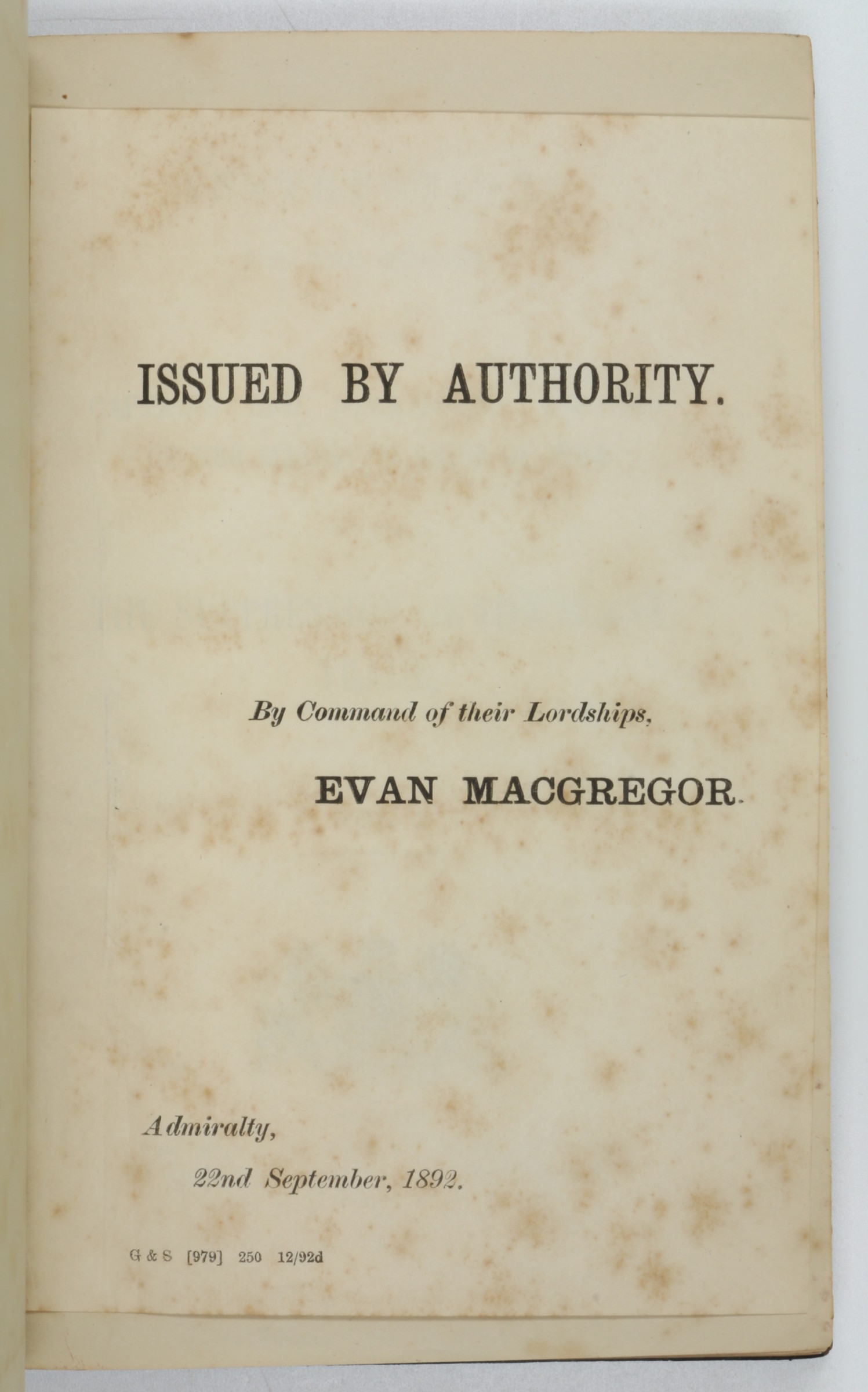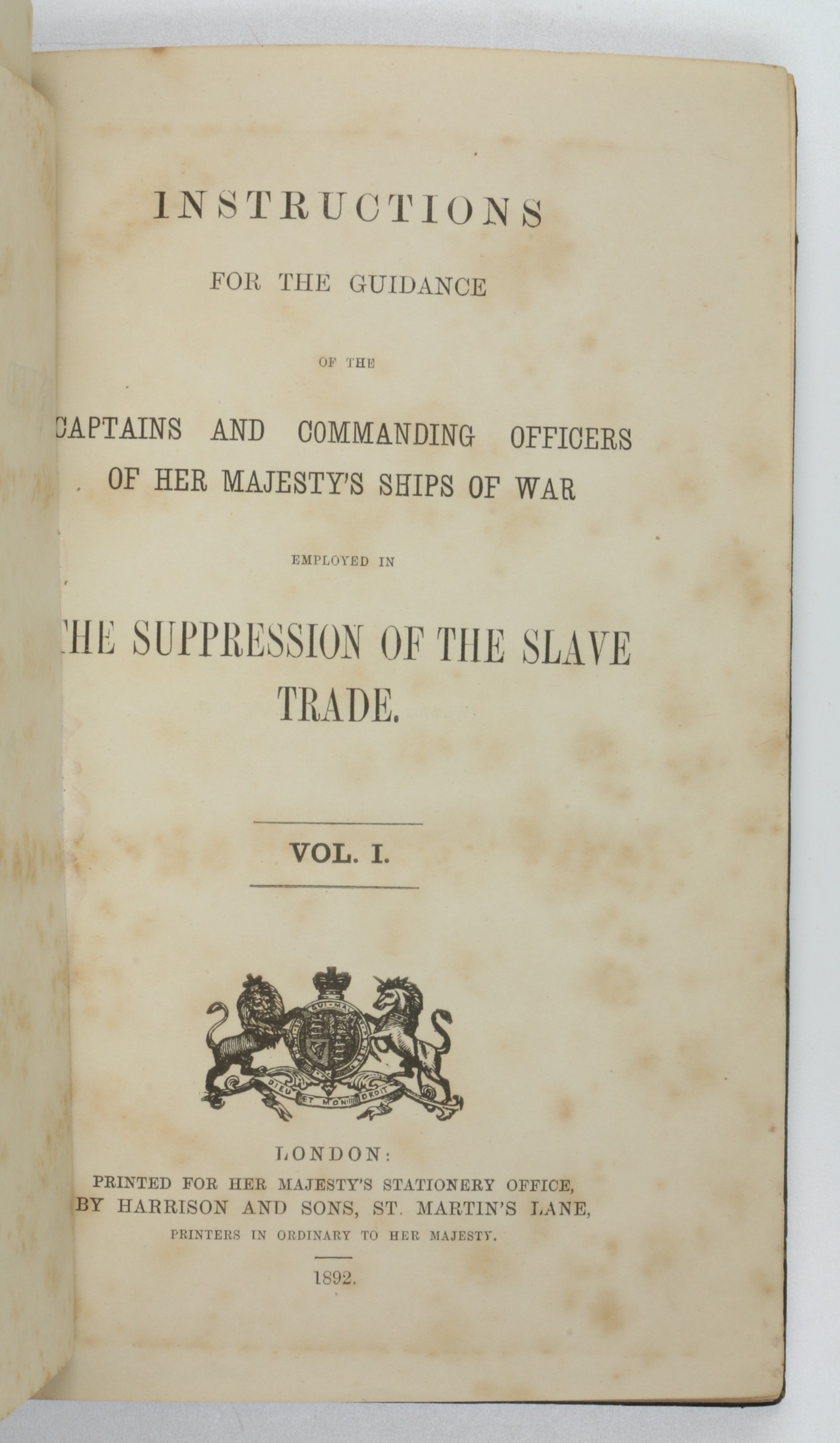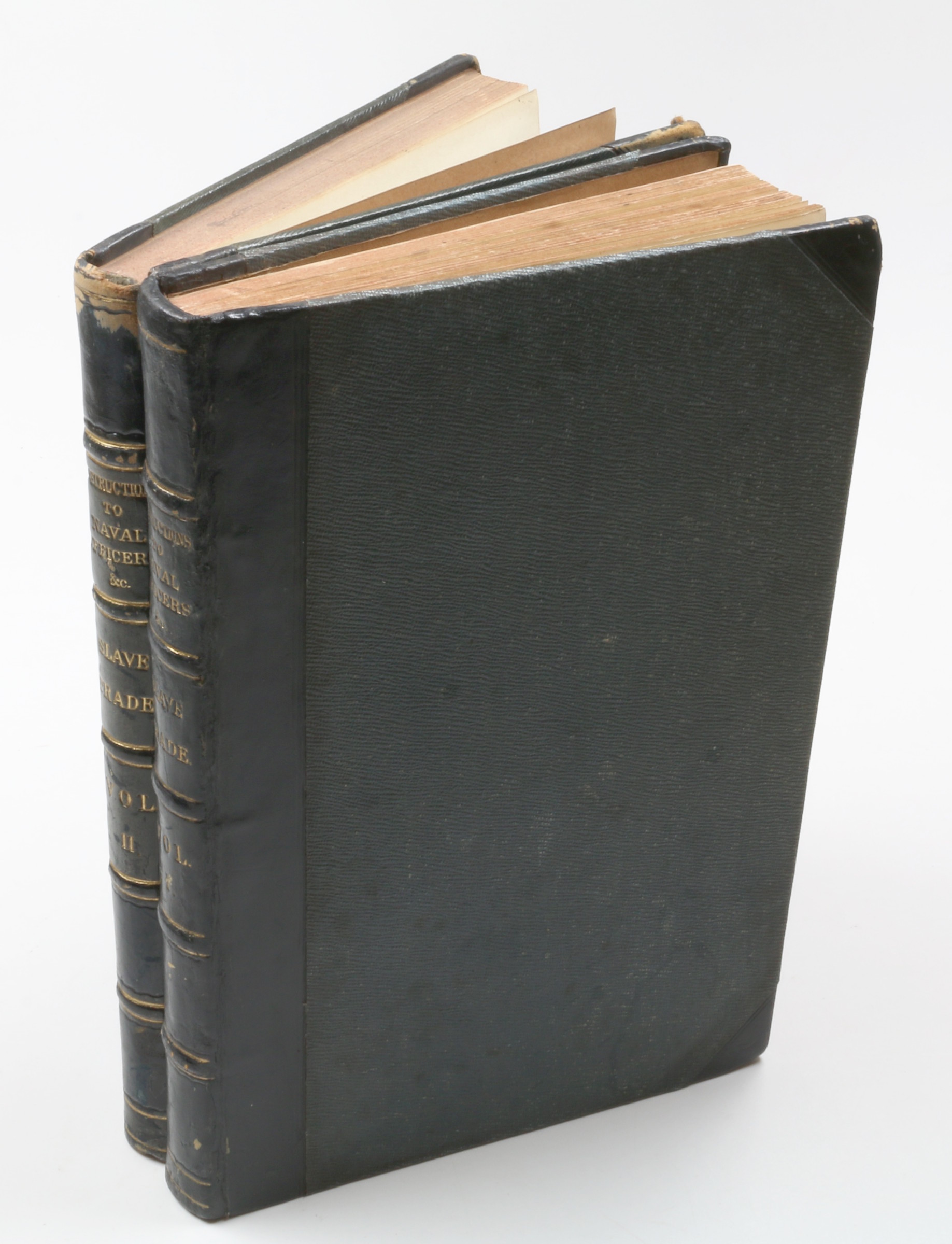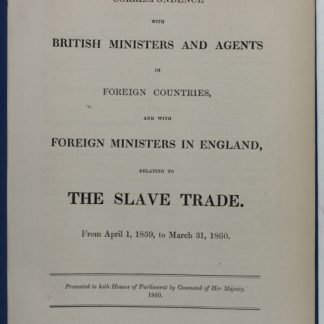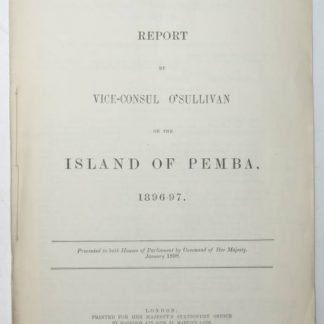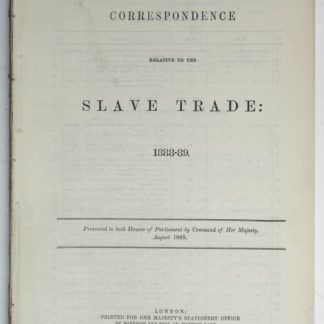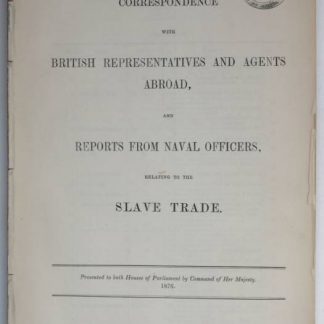[SOLD]
This item has sold. We are always interested in acquiring another copy or any item of comparable quality.
British-Arabian Treaties: The Emergence of the Modern Gulf States
Instructions for the Guidance of the Captains and Commanding Officers of Her Majesty's Ships of War Employed in the Suppression of the Slave Trade.
8vo. 2 vols. XIV, 259, (1) pp. (4), 205, (1) pp. Contemporary black half calf with giltstamped spine.
First edition of this rare manual for British naval officers, reprinting in full the texts of all the treaties signed between the Gulf Sheikhdoms and the United Kingdom between 1820 and 1847.
The first agreement is the General Treaty with the Friendly Arabs, signed at Ra’s al-Khaymah in 1820 (pp. 144-146). Arab signatories include "Sheikh Shakbool", that is Tahnun b. Shakhbut, Sheikh of the Bani Yas and ruler of Abu Dhabi from 1818 to 1833, "Sultan bin Sugger", or Sultan bin Saqr al-Qasimi, ruler of Sharjah, and the "Sheikh of Dubey", who in later agreements is named explicitly as Maktum b. Bati, who announced the independence of Dubai from Abu Dhabi in 1833 and founded the Maktoum dynasty. The treaty binds the Arab sheikhdoms to aid the British against piracy in the Gulf, illustrating that the British, despite their naval supremacy, found their interests genuinely threatened by the activities of Arab sailors in the region. A further set of agreements, signed in 1838, with the chief of Abu Dhabi, now known as "Khaleefa ben Shakbool", gives the British the right to detain and search any ships entering their ports which are suspected of carrying slaves. The final set of treaties, agreed with the various Gulf sheikhs over the course of 1847, including the chief of Bahrain, Muhammad b. Khalifah b. Subman, gives licence to British cruisers to seize any ships suspected of involvement in the slave trade. These "Instructions" were published in light of the Brussels Anti-Slavery Conference of 1889-90; the year of publication was also that of the Exclusive Agreement.
Rare, and a highly important document of the formation of the modern Gulf States. One of 500 copies printed, a printed issue-slip tipped to the title page of volume I appearing to indicate that a maximum of 250 copies were actually issued in the first instance, with just six copies now traced in libraries worldwide.
OCLC 17932251.

